Abstract
The proton and 13C magnetic resonance (CMR) spectra of 10 Sporothrix schenckii and three Ceratocystis stenoceras rhamnomannans were studied. On the basis of their CMR spectra, the rhamnomannans from S. schenckii strains could be classified into two major types, I and II, readily distinguishable from the polysaccharides formed at the same temperature (25 C) by C. stenoceras. Rhamnomannans from S. schenckii synthesized at 37 C gave CMR spectra (type III) differing from those of polysaccharides of types I and II and from those of C. stenoceras polysaccharides. The contention that C. stenoceras might be the perfect form of S. schenckii is not supported by the present data. A presumptive pathogenic mutant of C. stenoceras synthesized a type I rhamnomannan characteristic of S. schenckii, clearly differing from the rhamnomannans from C. stenoceras synthesized in the same conditions. Nuclear magnetic resonance spectroscopy revealed differences in the structures of the polysaccharides from these species not previously recognized by methylation analysis.
Full text
PDF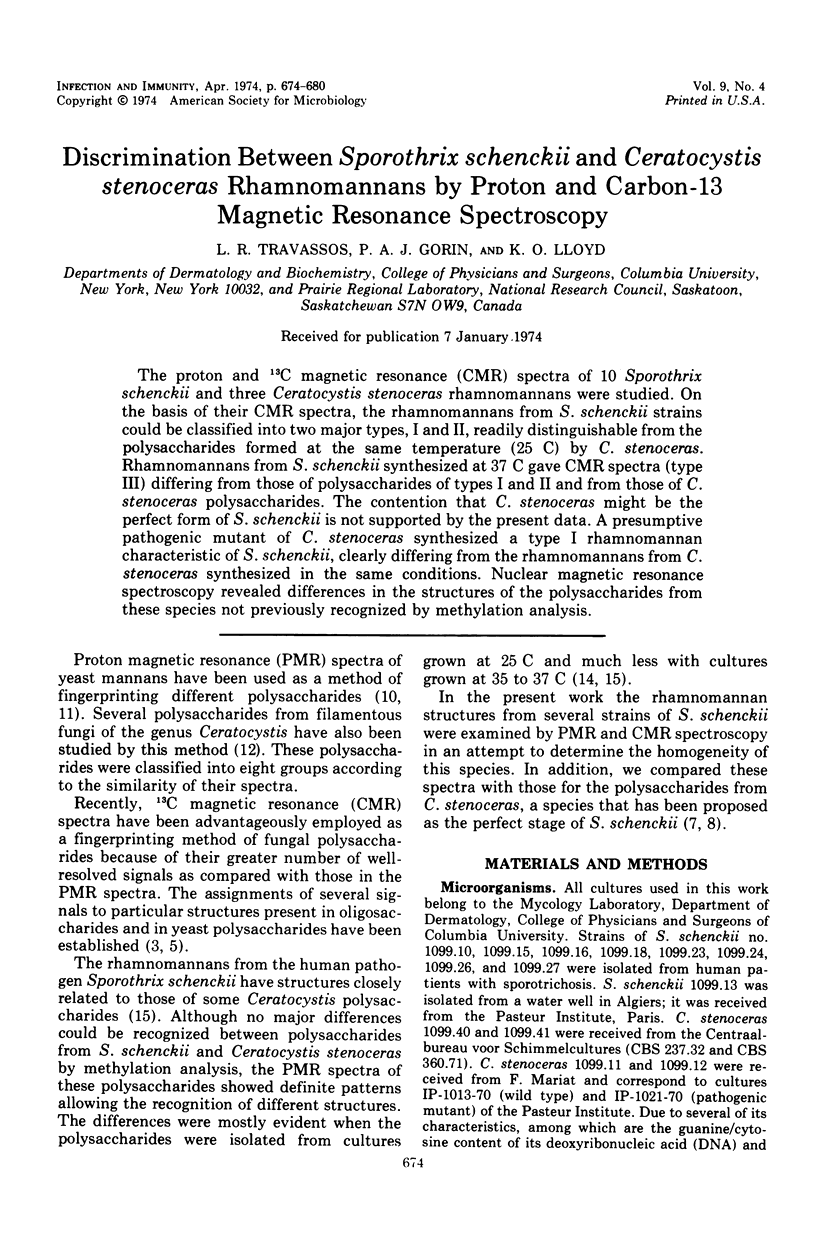
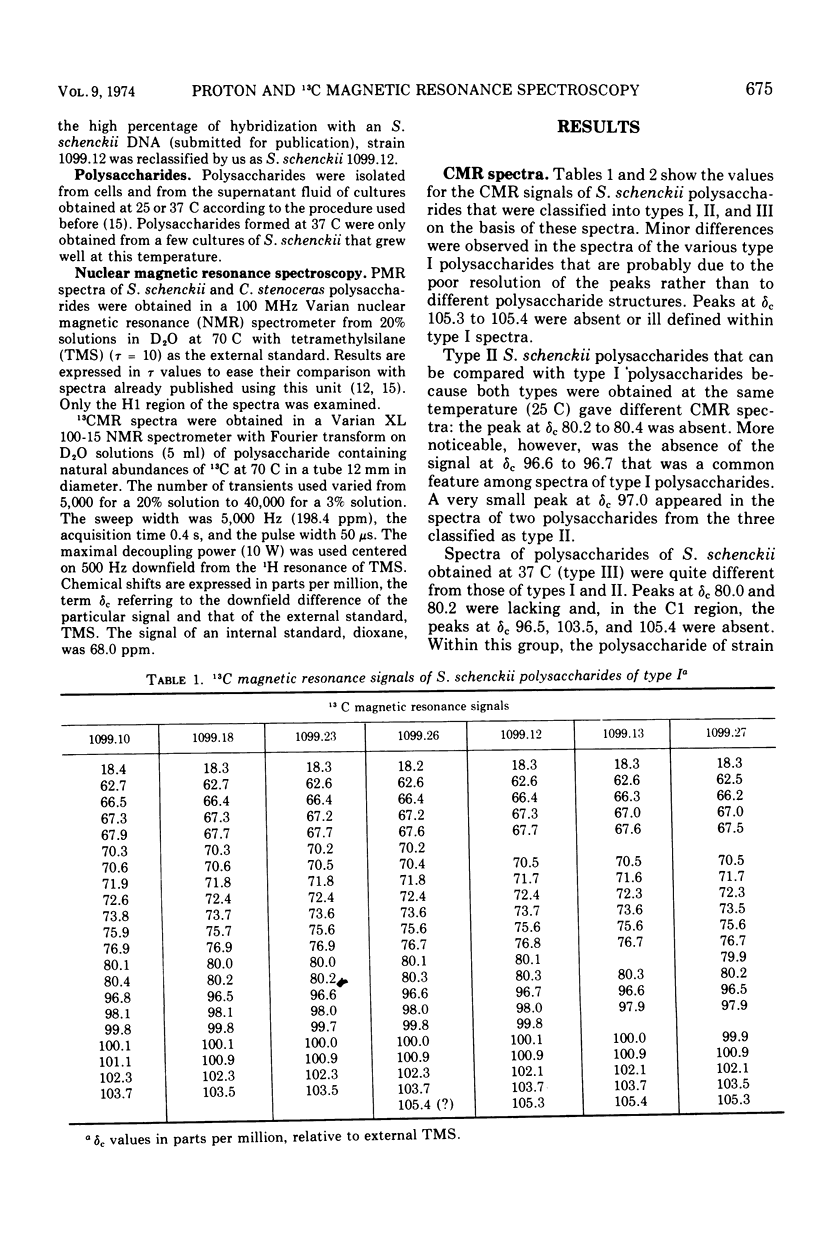
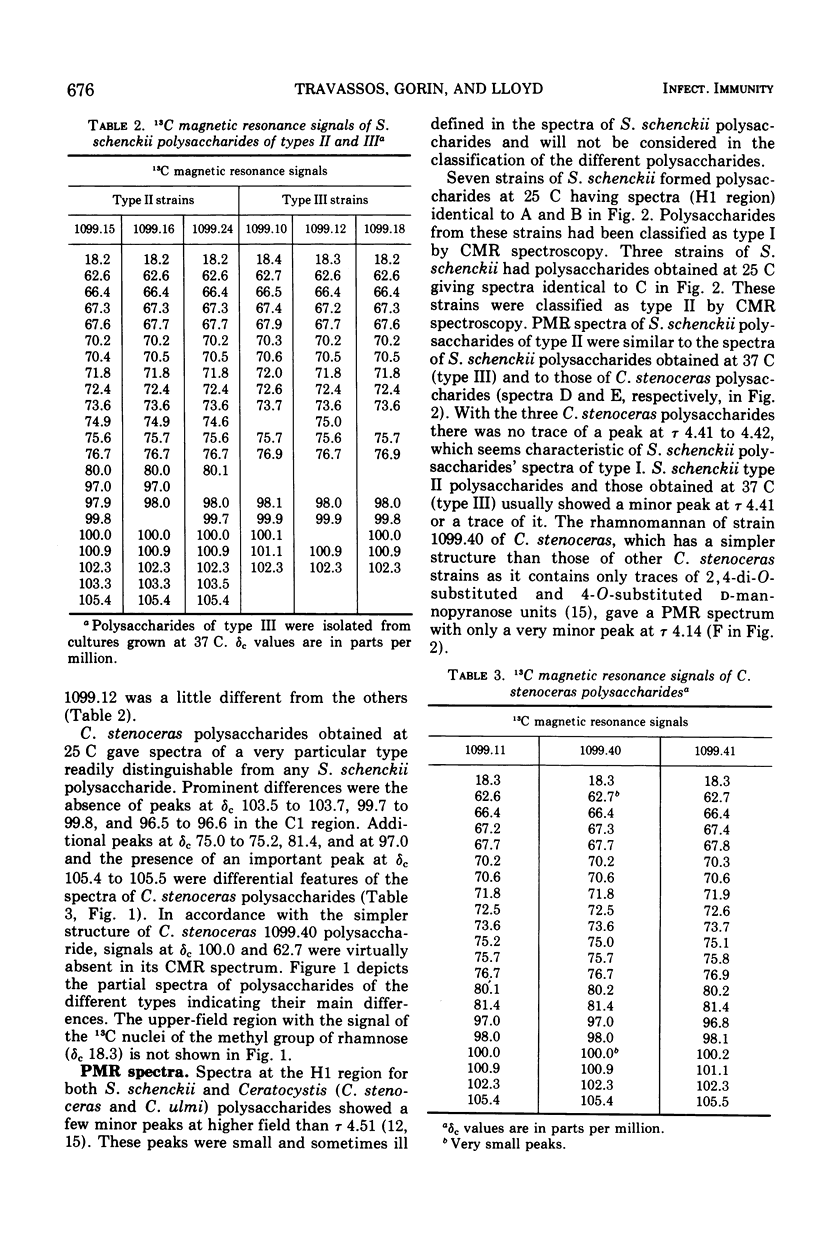
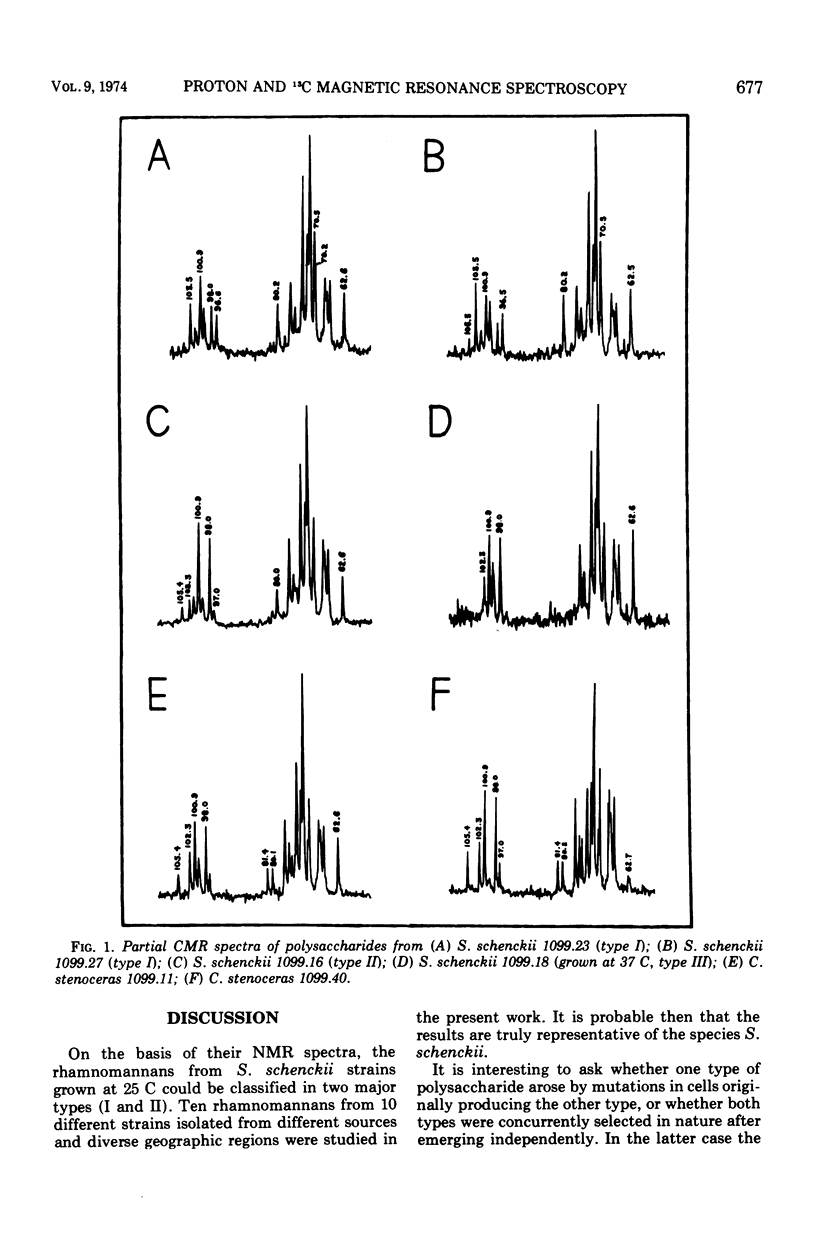
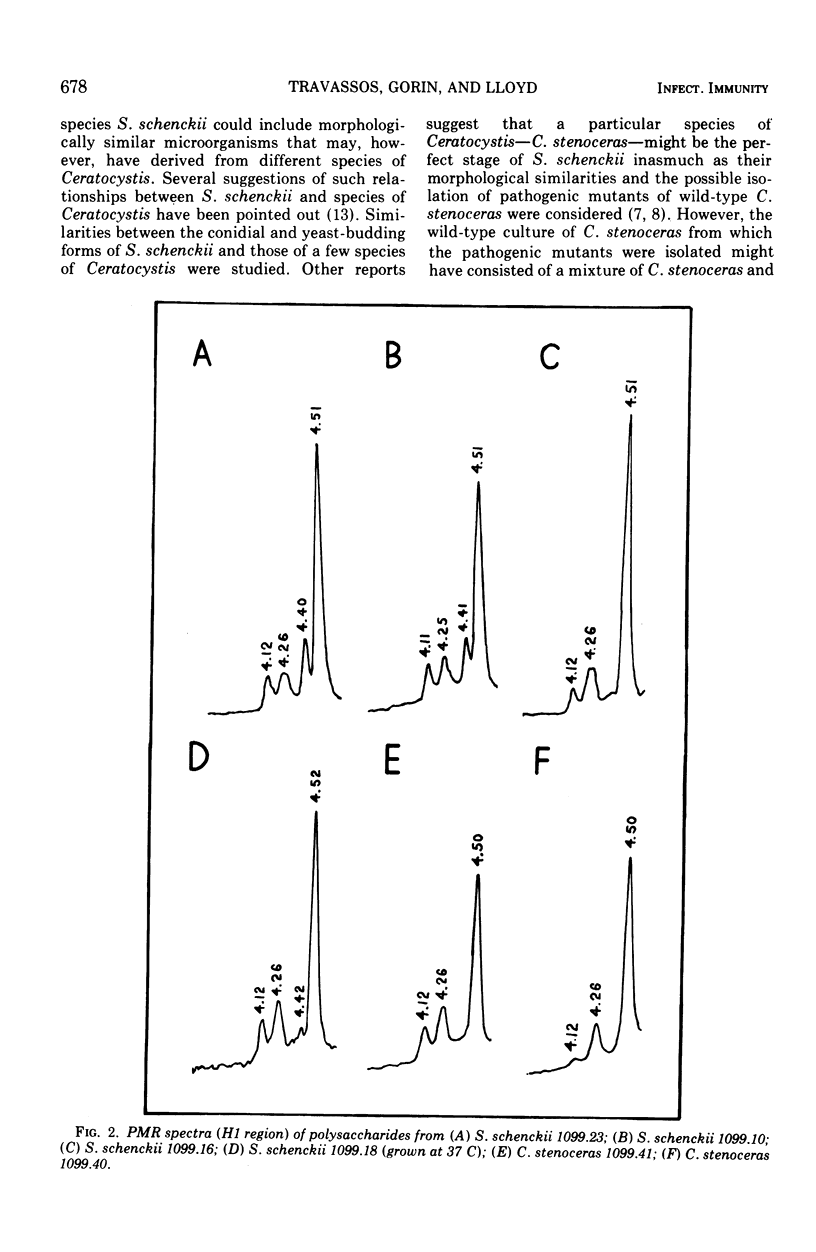
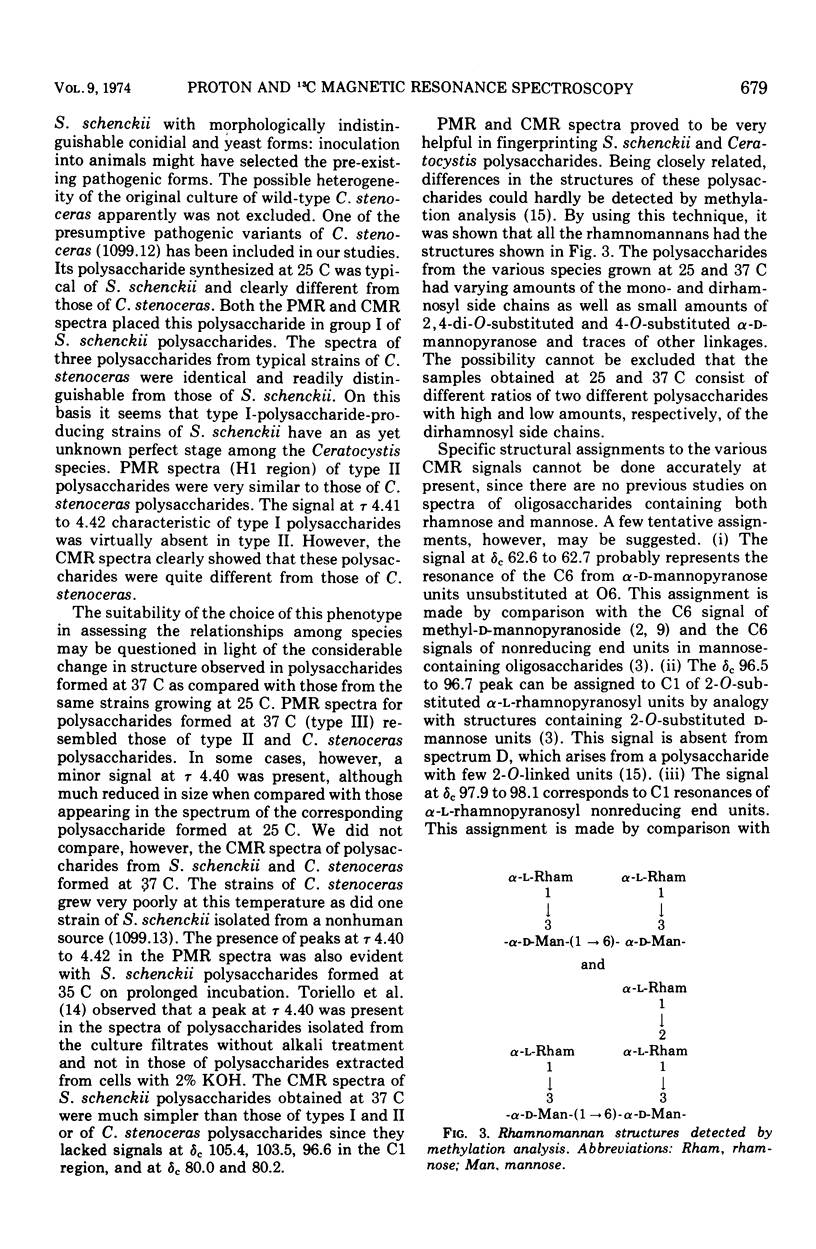
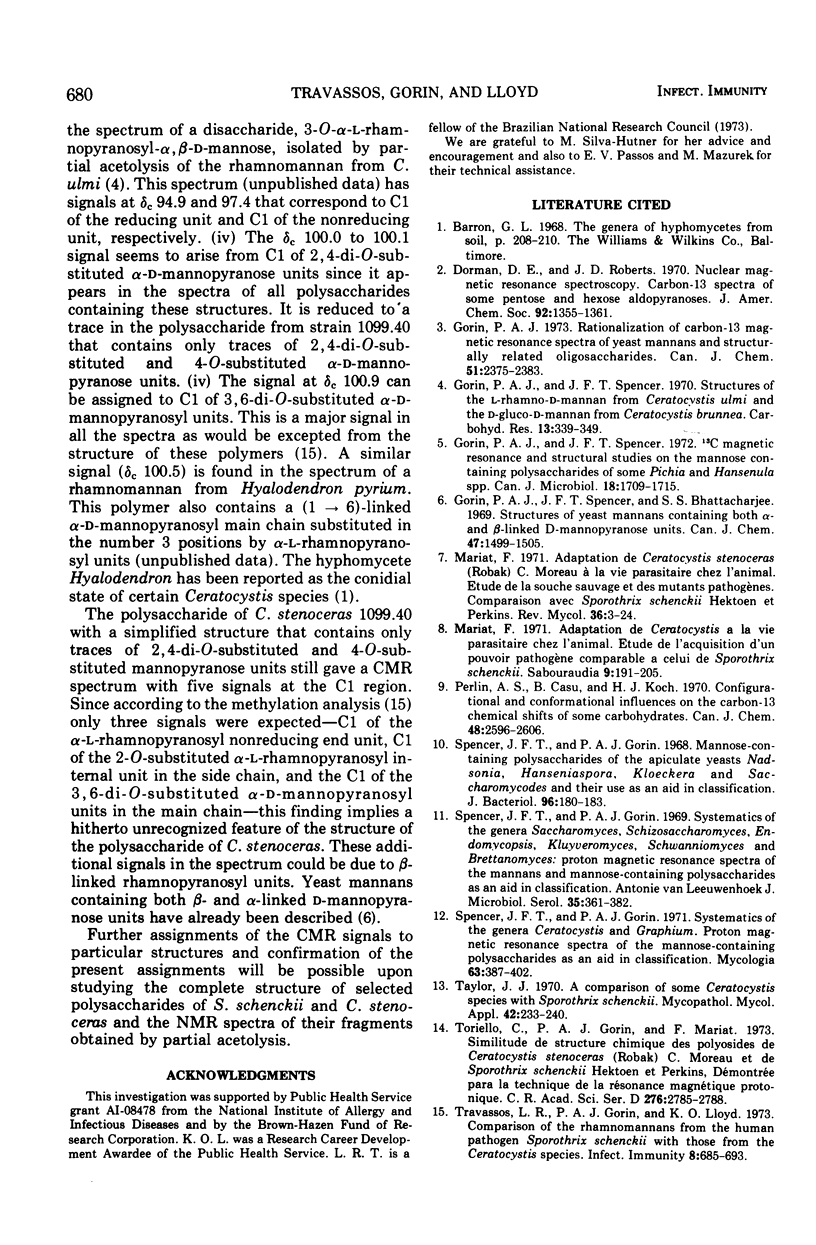
Selected References
These references are in PubMed. This may not be the complete list of references from this article.
- Gorin P. A., Spencer J. F. 13 C magnetic resonance and structural studies on the mannose-containing polysaccharides of some Pichia and Hansenula spp. Can J Microbiol. 1972 Nov;18(11):1709–1715. doi: 10.1139/m72-265. [DOI] [PubMed] [Google Scholar]
- Mariat F. Adaptation de Ceratocystis à la vie parasitaire chez l'animal--étude de l'aquisition d'un pouvoir pathogene comparable à celui de Sporothrix schenckii. Sabouraudia. 1971 Nov;9(3):191–205. [PubMed] [Google Scholar]
- Spencer J. F., Gorin P. A. Mannose-containing polysaccharides of the apiculate yeasts Nadsonia, Hanseniaspora, Kloeckera, and Sacharomycodes, and their use as an aid in classification. J Bacteriol. 1968 Jul;96(1):180–183. doi: 10.1128/jb.96.1.180-183.1968. [DOI] [PMC free article] [PubMed] [Google Scholar]
- Spencer J. F., Gorin P. A. Systematic of the genera Saccharomyces, Schizosaccharomyces, Endomycopsis, Kluyveromyces, Schwanniomyces and Brettanomyces: proton magnetic resonance spectra of the mannans and mannose-containing polysaccharides as an aid in classification. Antonie Van Leeuwenhoek. 1969;35(3):361–378. doi: 10.1007/BF02219155. [DOI] [PubMed] [Google Scholar]
- Taylor J. J. A comparison of some Ceratocystis species with Sporothrix schenckii. Mycopathol Mycol Appl. 1970 Dec 29;42(3):233–240. doi: 10.1007/BF02051951. [DOI] [PubMed] [Google Scholar]
- Travassos L. R., Gorin P. A., Lloyd K. O. Comparison of the rhamnomannans from the human pathogen Sporothrix schenckii with those from the Ceratocystis species. Infect Immun. 1973 Nov;8(5):685–693. doi: 10.1128/iai.8.5.685-693.1973. [DOI] [PMC free article] [PubMed] [Google Scholar]


